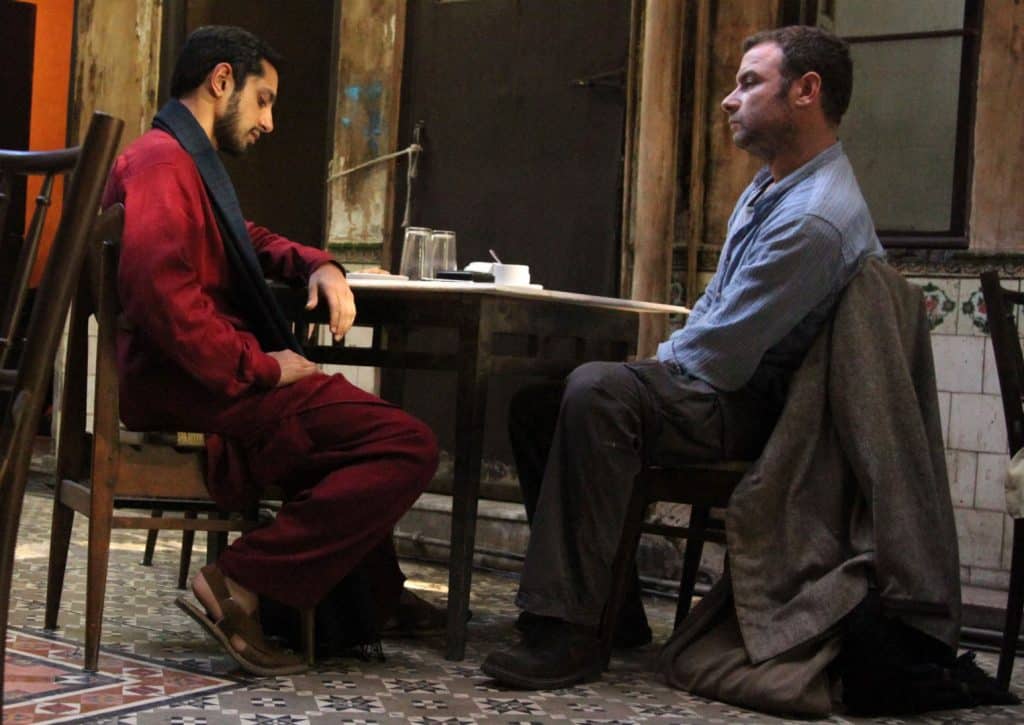Read also:
How to Watch FX Live Without CableHow To Watch AMC Without CableHow to Watch ABC Without CableHow to Watch Paramount Network Without CableEvery month, we at The Spool select a filmmaker to explore in greater depth — their themes, their deeper concerns, how their works chart the history of cinema, and the filmmaker’s own biography. For January, we look back at the multi-faceted career of Indian-American filmmaker Mira Nair, whose textured works expertly thread social, cultural, and narrative borders. Read the rest of our coverage here.
The characters in Mira Nair’s films walk along a knife’s edge of great change. On one side: what was; on the other: what could be. In Mississippi Masala, a young woman of Ugandan Indian heritage and a Black American man fall in love, a relationship that causes a scandal among the conservative in both communities. In Monsoon Wedding, the chaos of a gigantic Indian wedding teases out familial secrets about infidelity and abuse. And in The Namesake, a married couple who are practically strangers move from India to America and start a life together, adapting to the strange rhythms of a new country and each other.
So many of Nair’s films focus on the transformative nature of romantic love, and the ways we mold ourselves around those whom we allow into our confidence, whom we look for first whenever we walk into a room, and whom we always hope is on the other side of a phone call. But in The Reluctant Fundamentalist, Nair’s 2012 adaptation of Pakistani author Mohsin Hamid’s 2007 novel, the filmmaker considers love of a different kind: love of country and love of self, and how the two can operate in collaboration or contention. Reviews at the time used the word “extremism” over and over again when describing The Reluctant Fundamentalist, which stars Riz Ahmed as a Pakistani professor targeted by the C.I.A. for his lectures against American military might and his alleged ties to terrorists. But to think that Nair’s film is only about the emboldening effect of rebelling against imperialism would be to miss its nuanced examination of identity as the result of a broad spectrum of factors: the yawning sprawl of globalism, the intimate cruelty of unrequited love, the yoke of familial expectations. What rises up after the kind of devastation that chips away at you bit by bit, that robs you of your dignity, that forces you into a state of denial? What kind of person arises from that, and who would they become?
The Reluctant Fundamentalist begins in the narrative middle, with the chaotic kidnapping of an American professor on the sidewalk of a busy street in Lahore, Pakistan. The disappearance of Anse Rainier (Gary Richardson), the ransom demands of the kidnappers, and the increasing distrust of Lahore University students toward the police bring trouble to the doorstep of fellow professor Changez Khan (Ahmed). His office is ransacked. His family is harassed. Police disturb patrons at the Pak Tea House where Khan holds court. And unbeknownst to Khan, a nearby C.I.A. team spies on his every move, collecting information about who he meets with, where he goes, and what he says. They’re convinced he had something to do with this kidnapping, and his recent public statements critical of American military actions and capitalist greed have only increased their suspicions.

When Khan agrees to meet with journalist Bobby Lincoln (Liev Schreiber) to set the record straight, tensions are already high. Is Anse alive? Is he dead? And yet this is Khan’s opportunity to tell his story, and he’s going to tell it: “Please listen to the whole story from the very beginning, not just bits and pieces,” he instructs Bobby. “Looks can be deceiving. I am a lover of America, although I was raised to feel very Pakistani.”
With that statement, Nair takes us back in time 10 years, to when Khan was a striving young man in a Pakistani family falling downward out of its social class. On a scholarship, he travels to the United States and attends Princeton University, where he plays varsity soccer for four years, excels academically, and lands a job with New York City financial firm Underwood Samson. He had bristled during the interview with Underwood Samson managing director Jim Cross (Kiefer Sutherland), pointedly correcting the man’s mispronunciation of his name as “Changes” rather than the correct “Chang-ez,” and that chip on his shoulder got Cross’s attention.
At the firm, as at Princeton, Khan shines, displaying a particularly ruthless flair. The job is valuating companies, assessing how much they’re worth, and figuring out how to cut costs; Khan sees it as saving money and boosting efficiency. In reality, though, everything is a matter of perspective. He encourages firings, eliminations, cancellations of contracts. He thinks not of the underdogs, or the victims, or those affected by his pursuit of capital above all else. He is living the American dream, and everyone else can get out of his way.
[T]he injustice Khan weathers every day as a brown man living in New York City after the Twin Towers fell is written all over Ahmed’s weary face, in the tightness of his body, in the eventual explosiveness of his anger after detainments, arrests, strip searches, microaggressions, and accusations
Sept. 11, 2001, changes all that—both outwardly, in terms of how others treat this young brown man who dares to aspire for more, and inwardly, in terms of how that same man assesses the factors attempting to limit his ascension. Ahmed’s Khan is first aghast at footage of the planes flying into the Twin Towers: Nair centers him in the frame, his eyes wide and disbelieving, his hand covering his mouth. She flicks us over to the TV, to the footage of fire and billowing smoke there, to the frantic news reports attempting to figure out what’s going on. Then she returns to Khan, still centered, but no hand covering his mouth now. Nothing encumbering his gaze. And for the briefest moment, on his face, a smile.
“Have you never felt a split second of pleasure at arrogance brought low?” Khan asks Lincoln back in the present day, and The Reluctant Fundamentalist splits its time between continuing the former’s story and understanding how his faith in the promise of America was steadily undercut by the hypocrisy, paranoia, and xenophobia gripping the country after 9/11, and tracking Lincoln’s reactions to the story he’s being told and comparing it with his own C.I.A.-fed beliefs about Khan.
Over and over, Nair returns to that idea of perspective, and how our own prejudices and preferences shape our actions and reactions. Khan’s relationship with his girlfriend Erica (Kate Hudson, one of the film’s rare missteps) begins to fray, and reaches a breaking point when Erica commodifies their affair for a garish art exhibition. Khan’s close relationship with his boss Jim is derailed after a trip to Turkey, during which Khan is criticized by a Turkish book publisher for his alliance with American business interests. (Haluk Bilginer is a scene stealer as publisher Nazmi Kemal, and his conversation with Ahmed’s Khan about the janissaries, child slaves held by the Ottoman Empire, is one of the film’s most thought-provoking sequences.)
And the injustice Khan weathers every day as a brown man living in New York City after the Twin Towers fell is written all over Ahmed’s weary face, in the tightness of his body, in the eventual explosiveness of his anger after detainments, arrests, strip searches, microaggressions, and accusations. You understand why Khan eventually returns to Pakistan, and you understand why he asks his students, teenagers, and young adults who might hope to emigrate to America, as he did, “Is there a Pakistani dream?” “We put our begging bowl out to other countries … and after a while, we start to despise ourselves for it,” he says, and the resentment there—of needing something, and hating the person denying you of it for making you need it in the first place—is simmering just under the surface of The Reluctant Fundamentalist.
Hamid’s novel, which is entirely one long monologue by Khan to an unnamed American stranger who might be a reporter or might be an assassin, is changed a fair amount by William Wheeler and Rutvik Oza, who worked off a screenplay first draft from Hamid himself. Certain formative elements, loaded with thematic meaning, are maintained: Khan telling Erica to imagine him as her dead white boyfriend when they have sex for the first time so she can stay aroused; Khan turning to dissenting literature and poetry as a means of pinpointing his frustrations with American empire.
But other components are laid out so plainly that they lose the twisty-turny nature of Hamid’s original work, in particular the film’s ending. Is it still unpopular to, in movies about the American military and C.I.A., depict their casual bloodthirst through the unpunished murder of foreign nationals and citizens? Sure; Nair, Wheeler, and Oza took a risk with that. But so much of the unsettling power of Hamid’s novel, as in the contemporaneously released The White Tiger by Aravind Adiga, is not tied up in the actions of American characters. Instead, it is in the unreliability of Khan as a narrator and in the possibility that he is in fact the ruthlessly principled, meticulously prepared mujahid the Americans think he is.

In film form, The Reluctant Fundamentalist flirts with that idea but seems hesitant to commit to it. The very last shot of the movie could go either way—could cement Khan as an active participant in Anse’s kidnapping, or could exonerate him as an unaware observer uninvolved in that violence. The decision is the viewer’s, but those concluding seconds of Ahmed’s face, and the blankness of his expression upon it, feel unresolved in a somewhat unsatisfying way.
Perhaps, then, the most fitting way to assess The Reluctant Fundamentalist isn’t to judge its protagonist based on right or wrong or to assign our personal structure of morality upon it. What matters more, and what makes the film so clearly a Nair work despite its narrative differences from Mississippi Masala, or Monsoon Wedding, or The Namesake, is that original idea of love, and the loss of it.
In an interview with The Wall Street Journal in April 2013, Nair described how Khan’s experiences in America after 9/11 “feel like the lover who betrayed him,” and it’s important to hold that explanation in your mind when you consider the scene where Khan tells Erica the three Urdu words for love. “Pyar,” “muhabbat,” and “ishaq”—all slightly different variations of passion and lust, yearning and desire, and yet similar in the spark they can provide. Maybe enough to inflame reluctance into revolution.